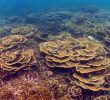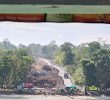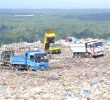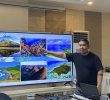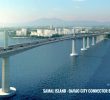GENERAL SANTOS CITY — Dina Gracia feels blessed.
With her husband, this 28-year-old mother of two from the town of Wao, Lanao del Sur, has planted 400 rubber tree seedlings on land they now have a legal right to farm � and every motivation to protect it from abuse.
Through the efforts of the Wao municipal government and help from the U.S. Agency for International Development (USAID), Dina now enjoys what is called an “Individual Property Right” or IPR. The IPR was granted to her and 17 other residents by the municipal government last Oct. 1, 2007.
The IPR allows them to develop their land without fear of being evicted. An IPR is a major step in forest protection since beneficiaries themselves act as stewards of the land. Because rights of tenure are formalized, an IPR also prevents land conflicts.
The awarded IPRs cover some 54 hectares of forestlands out of the 2,000 hectares under a co-management agreement between Wao and the Department of Environment and Natural Resources (DENR). Wao Mayor Elvino Balicao Jr. is particularly grateful to USAID’s Philippine Environmental Governance 2 Project (EcoGov2). He says EcoGov2 helped to “work out the tenure grants and extended valuable and extensive assistance to us in managing both our forestlands and our solid waste.� He added that �the IPR issuance will intensify the protection and conservation of our forestlands.�

Blessed. Dina Gracia with her IPR certificate. (Photo by Ruby More/USAid)
Most of the beneficiaries have already started planting rubber trees and fruit trees. They expect to reap the rewards of their work within five years, by which time they should be earning a steady income from harvesting high value fruits such as rambutan, lanzones, and durian.
�I’m very happy that I finally got this IPR. Now, no one else can claim our land as the LGU has already granted us the right for its use,� said Dina. The Wao local government loaned the seedlings, with repayments to start after the first harvest.
USAID’s EcoGov2 Project with the DENR helped Wao develop its Forest Land Use Plan. This plan spells out the sustainable use of the town’s forestlands. EcoGov2 also helped Wao draw up a 10-year Integrated Solid Waste Management Plan.
Mayor Balicao credits the former mayor � his father Balicao Sr. � with championing the active involvement of the community in enforcing these plans. The results were dramatic: Wao put a halt to illegal logging activities within its borders; and it successfully built a sanitary landfill for segregated solid waste, the first of its kind in the Autonomous Region in Muslim Mindanao. The fifth-class municipality has become a local government model for sound environmental management. (USAid)

